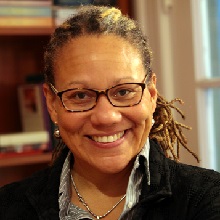
Kathryn Hall PhD, Director of Basic and Translational Research at the Osher Center, is a leading scientist in the area of placebo research. She was recently awarded a Radcliffe Exploratory Program grant which supported the groundbreaking Placebome in Clinical Trials and Medicine Conference in 2019. Read the interview with Dr. Hall below, conducted by Esme Goldfinger, Osher Research Assistant.
EG: What are placebo and nocebo effects?
KH: Placebos are inert representations or imitations of active treatments. Saline injections, sugar pills or sham acupuncture are examples of placebo treatments. When a patient benefits from taking a placebo treatment that is called the placebo effect. Placebo effects are thought to be strongly influenced by the expectation the patient has for relief from their symptoms. When the patient has a negative expectation or expects harm like a side-effect, this can result in a nocebo effect.
EG: How are placebos used in clinical trials?
KH: When randomized double-blind clinical trials became the standard process for determining if a drug with an active pharmaceutical ingredient worked, placebos were included in the trials as a comparator. To be considered to be effective, the drug must have a greater effect on the symptoms of the condition compared to the placebo control. In recent years it has become increasingly harder for a drug to beat the placebo response.
EG: Can you give us an example of a drug that has failed to beat placebo controls in recent years?
KH: It has been almost twenty years since the FDA approved a drug for Alzheimer’s. On June 7, 2021, the FDA granted accelerated approval to a new drug produced by Biogen for Alzheimer’s https://www.health.harvard.edu/blog/a-new-alzheimers-drug-has-been-approved-but-should-you-take-it-202106082483. The FDA requires more than one successful trial before they can approve the drug. In the case of Biogen’s Aducanumab (brand name Aduhelm), data from two phase III trials did not show that the drug clearly beat the placebo. However, cognitive decline was statistically significantly slower in the subset of participants who received the highest dose of the drug in one of the trials.
When a drug fails, many peoples hopes are dashed and this puts the FDA in a tough position. In June of this year the FDA went against the advice of their advisors and much to the surprise of many researchers, approved the drug. Since then, they have limited the language of the approval to just patients with mild cognitive impairment. This is an ongoing debate and remains to be seen what will happen to a potential block-buster drug when it fails to beat a placebo.
EG: If placebos are so effective, why don’t we use them in medicine today?
KH: Although many people respond to placebo treatments, they are not used in clinical care. This is because it would be unethical to give a patient a placebo and not tell them. Many clinicians and researchers believe that if patients knew they were being given a placebo it would not work because they would expect it not to work. But what if, based on thousands of clinical trials, patients were told about the possibility of the placebo improving their symptoms? Would that change their expectation? Would positive expectations about placebos open the door for clinicians to treat patients with placebos? This line of reasoning is being investigated by researchers Ted Kaptchuk and Anthony Lembo at Harvard Medical School. Kaptchuk and Lembo are asking if “open-label” or “honest” placebos can be used in clinical care of patients with conditions like irritable bowel syndrome (IBS) where the placebo response is quite high in clinical trials. And the answer so far is, yes!
EG: What does your placebo research focus on?
KH: My research focuses on who responds to placebos. Using genetics we are hoping to identify subpopulations that we can predict will benefit from placebo treatment. Since placebos use neurotransmitters and activate specific regions of the brain involved in pain processing, there is strong evidence that drugs can enhance or even block placebo responses. What we are finding is that the drug effect on placebos seems to vary with the genetic makeup of individuals. These findings are critically important in developing precision treatments.
EG: How can we use placebos in modern medicine?
KH: Given that placebos can induce benefit through positive expectations, it is important for clinicians and Integrative Medicine practitioners to be mindful of how to boost placebo and minimize nocebo effects. One way to do this is to avoid negative statements about the treatment. Describe treatments in a realistic but positive way.
Instead of focusing on the 10% of people who may not benefit or have side-effects from a treatment, focus on the 90% that benefit and have no side-effects. Trust and attention are important elements of placebo effects and critical to a good patient-practitioner interaction. Clinicians can help their patients understand their expectations and learn coping strategies in response. They can also give some guidance on information on the internet and educate patients and practitioners about nocebo effects.










